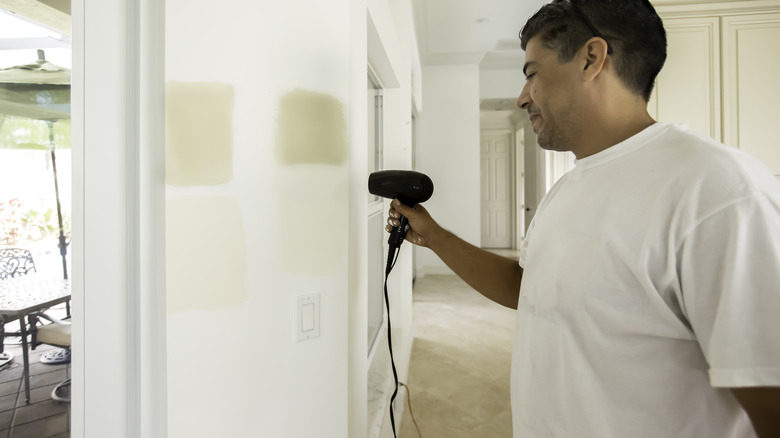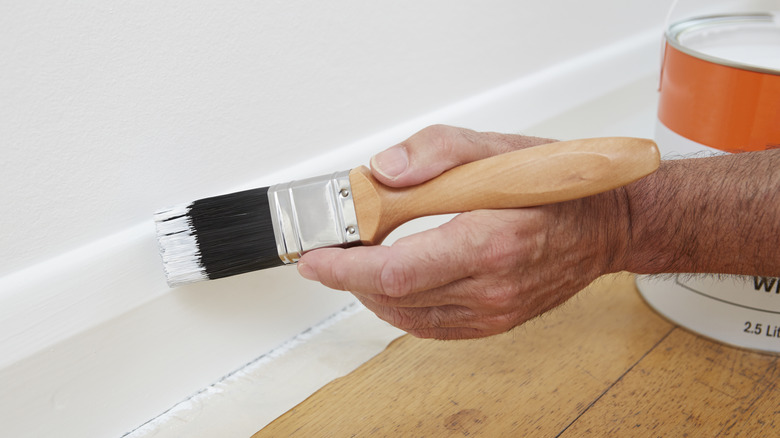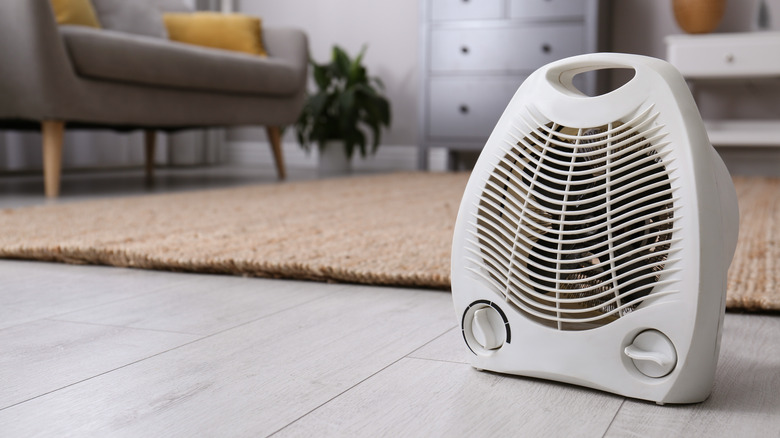How To Use A Hair Dryer To Dry Paint Fast
Waiting for the paint to dry can be a frustrating and time-consuming process. Quick drying not only enables you to complete your project efficiently but also reduces the risk of accidental smudges or smears that can occur when working with wet paint. The good news is you likely have a tool in your bathroom cabinet that can help; your blow dryer. This device offers precise control over heat and airflow for styling hair and can also be used to speed up drying on small areas of paint, such as trim and molding.
With its adjustable settings, a hair dryer can provide focused, warm air to these more minor spots, facilitating faster evaporation of moisture and reducing drying time significantly. Heat makes water molecules move faster and escape from the surface of the paint more quickly. As more water molecules evaporate from the paint, the paint starts to dry. In addition, directing the airflow onto the painted surface can remove excess moisture and promote rapid curing, making it an ideal option for smaller paint projects. With the right approach, you can significantly reduce drying time for small areas, allowing you to complete your projects swiftly and achieve the desired results.
Best practices to follow
To properly use a hair dryer on a small area of paint, begin by setting up a safe and suitable workspace ensuring proper ventilation to prevent fume buildup. Adjust the dryer settings by starting with the lowest heat setting available, minimizing the risk of overheating and paint damage. Maintain an optimal distance between the hair dryer and the painted surface, keeping it at least 1 foot away to ensure even coverage without the risk of concentrated heat damage. Apply the airflow consistently and evenly across the painted area by sweeping the dryer from one side to the other. Keep it at a slight angle to avoid focusing the heat on a single spot.
You can gently touch the surface with a clean, dry finger to check for any remaining moisture. Drying times can vary depending on factors such as paint type and environmental conditions, but avoid using the blow dryer longer than five minutes.
Considerations and alternatives
Consider attaching a diffuser to the hair dryer nozzle. This can help distribute the airflow more evenly, reducing the risk of concentrated heat on the paint. Always keep in mind that a hair dryer produces heat and uses electricity. Avoid contacting flammable materials, and never leave the dryer unattended while in use. Also, don't forget to unplug the hair dryer when you have finished.
While using a hair dryer is an accessible method for accelerating paint drying, there are alternative approaches you can explore to achieve quick drying results. For instance, you can place fans strategically to create a cross-ventilation effect in the painted area. Increased airflow helps evaporate moisture and reduces drying time. Dehumidifiers can aid in drying paint by lowering humidity levels in the surrounding environment. Heat guns, which provide intense and localized heat, can also be effective, but caution must be exercised to prevent paint blistering or scorching. Each method may yield different results, so finding the most effective approach for your project may require trial and error.


